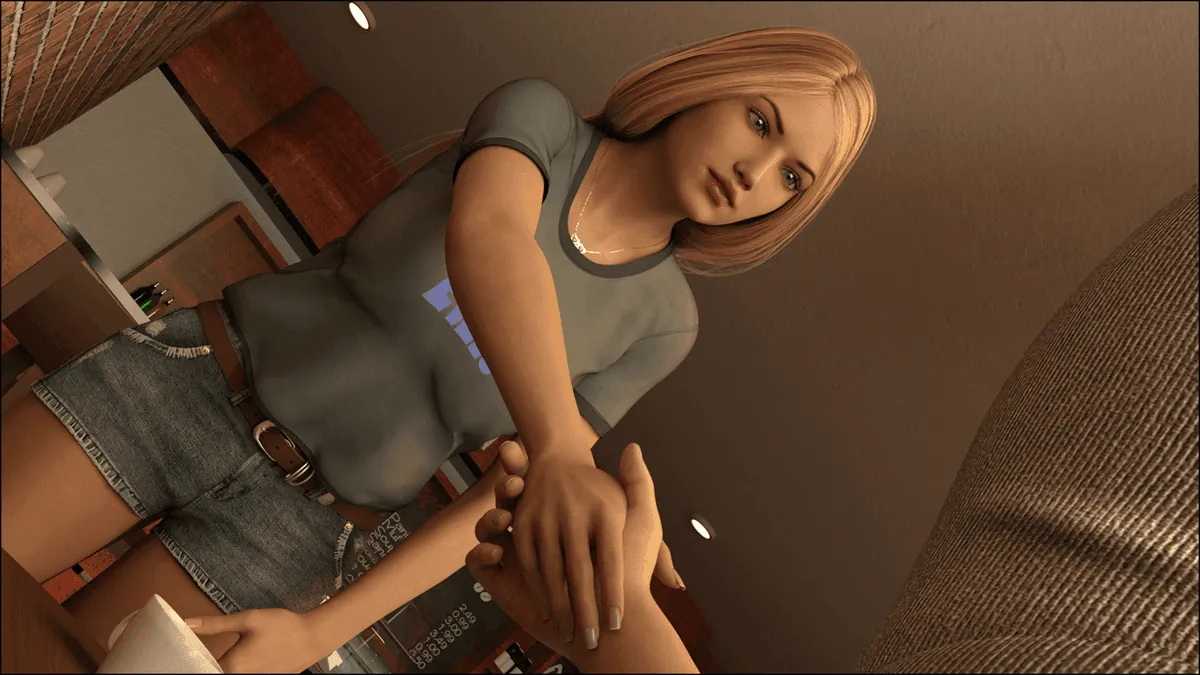
Love and Submission
Play Love and Submission
Love and Submission review
Explore the narrative, characters, and gameplay of this unique interactive experience
After years away, you return home to a family you barely recognize—sparking a story rich with emotion, choice, and consequence. Love and Submission is a narrative-driven adult game that blends interactive storytelling with character development, offering players a chance to shape relationships through meaningful decisions. Whether you’re curious about the plot, eager to meet the cast, or looking for tips to navigate the branching paths, this guide covers everything you need to know. Join me as I share my journey through the game, highlight standout moments, and offer practical advice for getting the most out of your experience.
Story and Setting: What Makes Love and Submission Unique?
Returning Home: The Premise That Pulls You In
Picture this: you’re driving down a familiar road, heading to a place you haven’t seen in years. The life you built for yourself out in the world is on pause. You’re going home. This is the powerful, instantly relatable starting point of the Love and Submission story. You play as a young man returning to his family estate after a long absence, only to find things are… complicated. 😔 The relationships you left behind have grown cold, and the people you once knew so well now feel like strangers.
The core Love and Submission premise is brilliantly simple yet deeply effective. You are cut off from your old life in a very literal sense—there is no internet access at the family home. This isn’t just a quirky detail; it’s a masterstroke of narrative design. This forced isolation strips away the distractions of the modern world and forces you, the player, to focus entirely on the people in front of you. There are no social media feeds to scroll, no emails to answer. Just you, your memories, and the family you need to reconnect with. 🏡
The emotional weight of this homecoming is palpable from the very first scene. You’re not just returning to a house; you’re returning to a past you walked away from, filled with unresolved tension and unspoken words. The Love and Submission narrative expertly captures that awkward, bittersweet feeling of seeing loved ones after years apart. The conversations are halting, the silences are heavy, and every interaction is charged with history.
“Years change a lot of things. But they don’t change everything.”
This line, spoken early in the game, perfectly encapsulates the journey you’re about to begin. It’s a reminder that while time has passed, the foundational bonds—and fractures—of family remain.
Family Dynamics and Emotional Depth 🫂
If the premise is the hook, the characters are the heart. The Love and Submission characters are not just archetypes; they are beautifully flawed, complex individuals. You have your two sisters, Linda and Helen, and your mother, each representing a different facet of the family you left behind. Your mother is strained and distant, burdened by the responsibilities of holding everything together. Linda, the more open-hearted sister, is cautiously optimistic about your return. Helen, however, is guarded and carries a palpable sense of hurt from your absence. 😥
Exploring these Love and Submission family dynamics is the core of the experience. The game is less about dramatic, world-altering events and more about the quiet, intimate moments that define relationships. A shared meal in the kitchen, a hesitant conversation on the porch, offering a helping hand with a chore—these are the building blocks of your story. The Love and Submission emotional impact comes from seeing how small acts of kindness or moments of understanding can slowly chip away at the walls these characters have built.
The game forces you to consider perspectives other than your own. Why is your mother so closed off? What happened to make Helen so resentful? Unraveling these mysteries is a slow, rewarding burn that makes you genuinely care about the outcome. You’re not just ticking boxes on a quest log; you’re actively trying to heal a broken family. The depth given to the Love and Submission characters ensures that your investment in their well-being feels real and earned.
Here’s a quick look at the core family members you’ll be rebuilding relationships with:
| Character | Initial Relationship | Key Personality Trait |
|---|---|---|
| Linda (Sister) | Warm but Cautious | Empathetic and Hopeful |
| Helen (Sister) | Distant and Resentful | Guarded and Independent |
| Mother | Formal and Strained | Burdened and Protective |
How Your Choices Shape the Narrative ✨
This is where the Love and Submission story truly becomes your story. The game is a masterclass in consequence, where every dialogue option and action carries weight. The Love and Submission choices you make don’t just affect a morality meter; they directly influence how the characters perceive you, trust you, and ultimately, whether they open up to you.
Are you going to be the apologetic son trying to make amends for lost time? Or will you be more assertive, pushing your family to address the elephants in the room? Maybe you’ll try to use humor to diffuse tension. The path you choose defines not only your character but the entire tone of the Love and Submission narrative.
Let me share a personal moment that absolutely floored me. Early on, both Linda and your mother ask you for help with separate tasks at the exact same time. It seems like a simple, inconsequential decision. I chose to help Linda first, thinking it was no big deal. But when I later spoke to my mother, the conversation was noticeably colder. She made a subtle comment about how “it’s nice that you have time for your sister.” That small choice had rippled through the game’s world. It reinforced her feeling of being overlooked and added a new layer of tension to our interactions. It was a brilliant demonstration of how the Love and Submission choices are woven into the very fabric of the story. 🤯
The branching is incredibly sophisticated. It’s not about picking a “good” or “evil” path. It’s about prioritizing relationships and navigating delicate social situations. Did you side with one sister in an argument? That will bring you closer to her but potentially create a new rift with the other. The game constantly presents you with these meaningful Love and Submission choices, ensuring that no two playthroughs are exactly alike.
Example: A Player’s Unique Story Outcome
Consider another player’s experience. One player focused intensely on rebuilding trust with Helen, consistently choosing dialogue options that acknowledged her pain and respected her boundaries. They ignored more overtly “romantic” or forward paths with other characters. As a result, they unlocked deeply emotional scenes where Helen, arguably the most wounded character, slowly began to confide in them, leading to a narrative conclusion centered entirely on sibling reconciliation and healing old family wounds. This outcome was completely different from a playthrough focused on a different relationship, showcasing the incredible flexibility of the Love and Submission narrative.
This level of player agency is what makes the Love and Submission emotional impact so profound. You feel responsible for the happiness of these characters. A successful, heartfelt conversation feels like a genuine victory. A misstep that causes someone to withdraw feels like a real personal failure. The game’s atmospheric setting—the sprawling, slightly worn-down family home and the isolated, quiet town—enhances this immersion, making you feel just as trapped and focused on this microcosm of relationships as the protagonist is.
Ultimately, the Love and Submission story is a powerful exploration of connection, responsibility, and the difficult work of rebuilding trust. Your Love and Submission choices are the tools you use to either mend a fractured family or, potentially, break it further for good. It’s a deeply personal journey that stays with you long after you’ve put the controller down.
Love and Submission stands out as a deeply personal, choice-driven experience that rewards exploration and emotional investment. Whether you’re drawn to its rich characters, intricate storylines, or the thrill of discovering hidden content, there’s always something new to uncover. My own journey through the game was filled with surprises, heartfelt moments, and a few tough decisions—proof that every playthrough can feel unique. If you’re ready to dive in, remember to take your time, talk to everyone, and don’t be afraid to replay for different outcomes. Join the community, share your stories, and see where your choices take you next.


















